‘Draft Letter’: With the failed bid by politicians to regulate the quantum of information about government and their friends in opposition parties on social media through the already trashed social media bill, the APC and the administration it birthed has used and is still using several other means to gag the media.
One of them is this growing propensity to profile the media as harbingers of fake news. By so doing, the watchdog press will lose the credibility of being the holder of the correct version of news. Unfortunately, journalists who are expected to speak up and defend their roles have been enveloped and spiraled into silence by the dangerous wave of support which the ‘fake news’ term has enjoyed over the years. The media appears to have been sucked in, using the term fake news themselves as an acceptable terminology.
Join our WhatsApp ChannelREAD ALSO: Interrogating Fake News – Utomi
But what this does is put the media in a psychological bondage of fear in reporting the truth. In the last seven years, it has become normal for politicians to simply dismiss a piece of unfavourable news as fake and move on to lament widening cache of misinformation in the media space. This particular attempt has threatened to make nonsense of whatever gains former President Goodluck Jonathan’s administration would have recorded in the areas of freedom of expression and information in Nigeria.
The term, ‘fake news’ does not exist in the journalistic parlance, but, can only exist in the figment of imagination of the user as far as professional journalism is concerned. I’ve been teaching journalism for almost 10 years, and the term doesn’t resonate among journalists or in journalism at all. The first mention of the term was in describing the spread of fabricated information on social media.
Professionally defined, news is news and cannot be anything else. It’s either a story has been correctly presented by a newspaper or not; in which case, it is referred to as misinformation. Under such rare circumstances, the media could offer a retraction or the offended party offers a rejoinder or rebuttal where accusations are involved. Broadly approached, even deliberate distortion of facts, if it happens among journalists, cannot be termed ‘fake news’, except of course we have expanded the definition of news, to include opinions and unverified information shared on the internet by individuals and blogs.
This practice of tagging unfavourable reports as fake news is not exclusive to the ruling APC but cuts across other political platforms, including politicians in the opposition People’s Democratic Party (PDP) and even the Labour Party. In so far as the news does not favour or glorify our politicians, they would often brush it off as fake, presented correctly or otherwise.
For instance, the media have come under intense attack by some APC leaders and supporters this week, for publishing a purported protest draft letter attributed to its Chairman, Senator Abdullahi Adamu, which was meant for their presidential candidate alleging non-involvement in constituting his Presidential Campaign Council (PCC). They tagged it ‘fake news,’ simply because the said letter was ‘unsigned’ and was even a ‘draft copy.’
Even the fake news reaction by the APC Publicity Secretary, Felix Morka was also unsigned, except that it appeared on the Party’s letterhead.
But then, to what extent would one say that the reports were fake? Fake in this context would mean that a true certified copy of the same news (draft letter) exists somewhere, while the media contrived a fake version. Barrister Morka’s knee-jerk reaction did not provide the real draft if the one widely published in the media was fake news.
I think our politicians are taking Nigerians for granted believing that by merely crying wolf on any revelation about the dealings of Nigerian politicians, the media would capitulate for fear of being tagged fake. Beyond issuing reactionary press releases, where is the place of rejoinders and rebuttal in our media space; are they now merely replaced with the cry of fake news? A meaningful response of APC and Morka, in this case should be to prove beyond reasonable doubt that the NWC did not meet on Wednesday this week to deliberate on the Presidential Campaign Council membership list.
The press statement should have also made efforts to prove that the NWC at the meeting did not agree to write Tinubu concerning the said PCC list. So why the fuss about the draft letter being fake and that the party chairman did not write Tinubu? Is Senator Abdullahi Adamu not the head of the NWC? To what extent would those who allege that the ‘Draft Letter’ was fake be right if they failed to provide the true copy of the same ‘draft letter’.
Interestingly, this is not the first time confidential letters and information leaked to the press and the manner in which journalists secure such information is beyond this article. However, two things usually happen whenever such happens – it’s either the writer withholds the letter and refuses to release as speculated by the media, or those affected will make attempts to discredit the source. The latter is what APC tried doing- call it fake news, meaning that it’s only good for the garbage. Really?
What if it turns out not to be garbage, after all? There are salient questions that need answers, aside the press release by the National Publicity Secretary, Barr. Felix Morka: Has Adamu Abdullahi, the purported writer of the said letter personally denied writing it? Did the discussion, Abdulahi referred to in the said letter, hold between him and Asiwaju Tinubu? Did Tinubu constitute his PCC without informing the secretariat? If he did, who were those included in the PCC from the party secretariat? Etc.
I believe that the APC is trying to do damage control, because of the uproar the leaked document caused recently. Not bad at all! But, what is bad is the attempt to discredit the source of the information. The implication, which could be a boomerang, is that the Party will have to look for too many lies to cover just one lie. A better approach is, and I’m sure that their media team will agree, would have been to be silent on it, while they plan a decoy, or to acknowledge it and assure the party members that it was being resolved.
It is my opinion that sanctimoniously calling the revelation fake news does not address the core of the matter, as politicians do not stand on any moral ground to call the work of the media fake. Let’s admit for once that the entire media space is now enveloped in the politicians’ fake news invention’ ( and this is not to support some obvious misinformation creeping in), does that really make the news ‘fake’? Would bad governance or error, for instance, by any government be rightly termed ‘Fake Governance’?
the term ‘FAKE NEWS’, a derogatory coinage by the political class for the political class, is is a slap on the media institution as the Fourth Estate of The Realm, especially as we do not have ‘fake policy’ (by the executive arm of government), ‘fake judgments’ by the courts, or ‘fake laws’ by the legislature.
Interestingly, one of the dailies, The Punch, on Friday morning reported a truce between the National Chairman of APC and Tinubu on the matter, wherein over 2000 appointments would be made to appease the chairman. Whether this will be termed fake news’ again is yet to be seen. But if this is the case, could it possibly be that the reconciliation between the two leaders and the NWC is what has now made the ‘draft letter’ report ‘fake’?
I think that Nigerians should really decide not to tag along with politicians on this fake news concept but interrogate every report to ensure accountability in governance. This is the only was to ensure that we do not also have ‘fake governance’ because if the news as a media product can be fake, elected governments can as democratic products could also turn out to be fake.
On the whole, it’s high time the media stood up to its sacred responsibility in engaging our politicians and challenging this dangerous ‘fake news appendage they have introduced in the last seven years before it erodes what is left of media’s watchdog role.
Dr Onyeike is a Senior Lecturer at the Dominican University, Ibadan

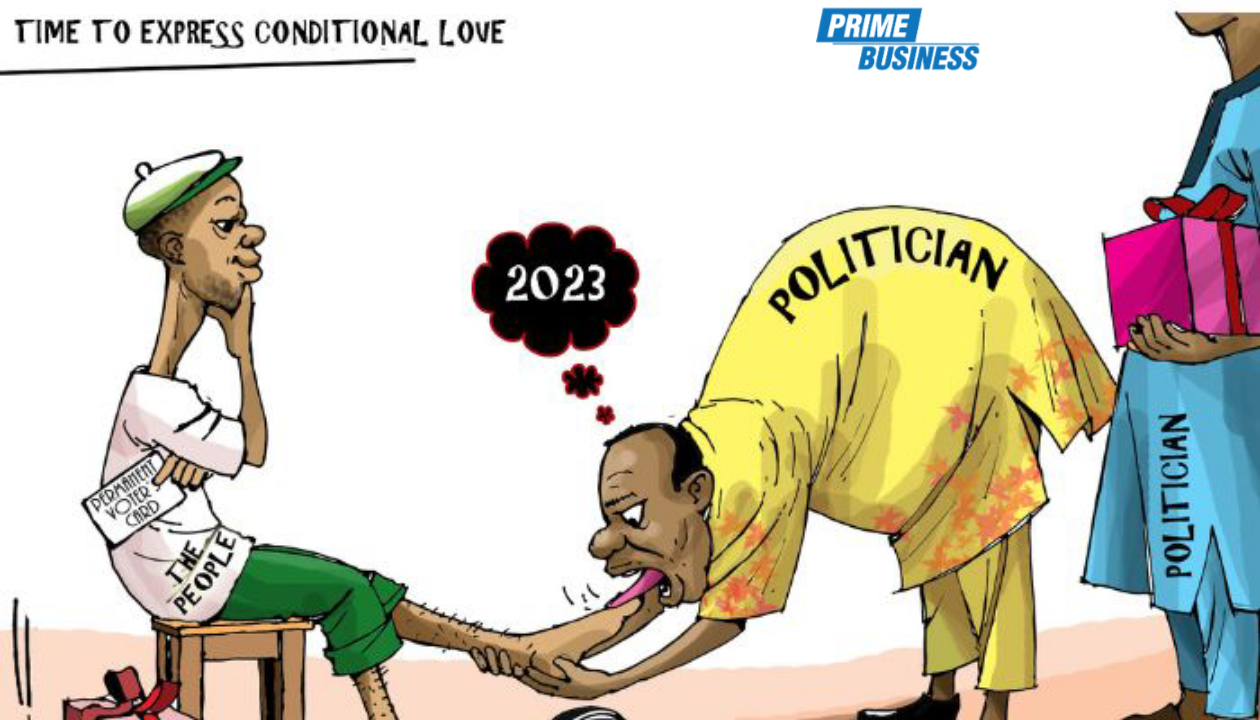



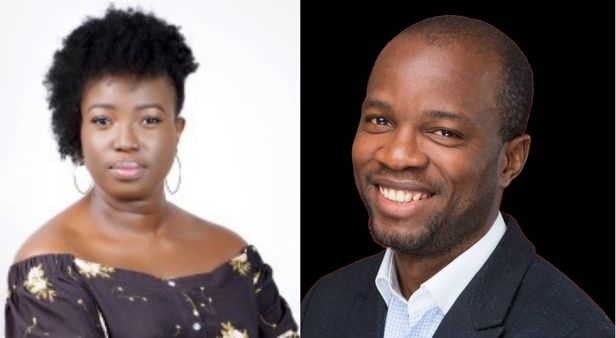
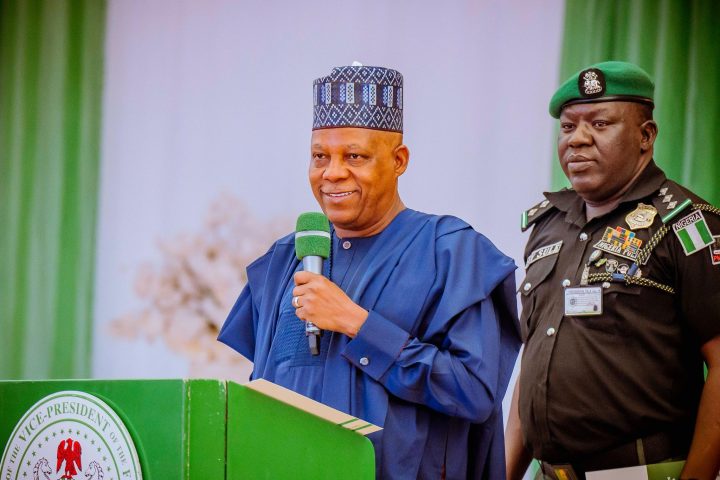









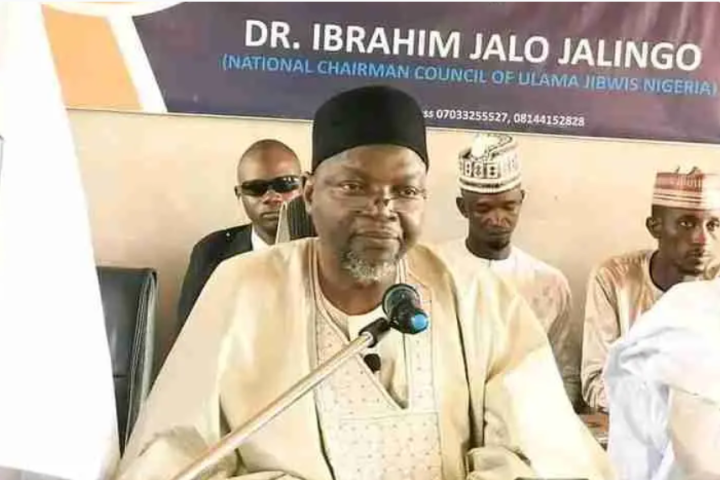
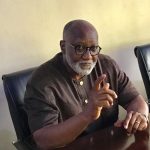
Follow Us